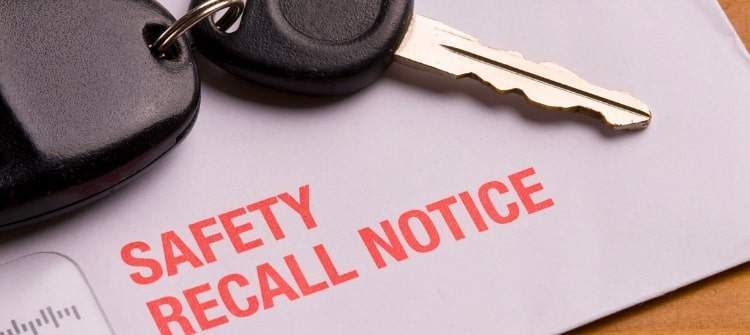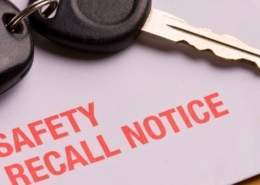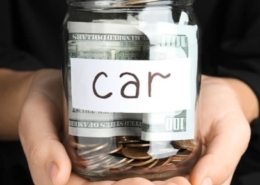How to Check for Recalls Before Buying a Car
How a simple check for car recalls before buying can save you from future headaches and keep you safe on the road.
Learn How to Check Car Recalls Before You Buy
Buying a car is a major investment, both in terms of money and the safety of your family. When you’re in the market for a new or used car, it’s vital not to skip one important step: checking for safety recalls.
A recall indicates that the car manufacturer has recognized a defect in their model, which could potentially put your safety at risk. These issues could be anything from minor mechanical problems to major safety threats affecting the overall driving experience and safety.
Key Takeaways
- Always Check for Recalls: Ensuring the car you plan to buy has no outstanding recalls is crucial for safety and avoids future hassles.
- Use Reliable Sources: Utilize official resources like the NHTSA’s website or trusted vehicle history report services to check for recalls accurately.
- Recalls Affect Safety: Addressing recalls is vital not only for vehicle functionality but primarily for the safety of all passengers.
In this detailed guide, we will explore the necessary steps to check for any recalls before you commit to purchasing a vehicle. This process will help ensure that the car you choose is stylish but also safe and reliable.
Car Buying Tip: Finding an affordable first car can be tough. Many buyers pay more than the retail price. Get a great deal by requesting a free car quote to compare local dealer prices.
Understanding Safety Recalls
Understanding vehicle recalls is crucial when buying a car. A recall occurs when a manufacturer identifies a safety defect in a model, which could range from minor issues to severe risks.
What is a Vehicle Safety Recall?
A car recall is issued when a manufacturer identifies a defect in one of its models. This defect could be due to manufacturing mistakes or failure to meet safety standards. These defects, like a malfunctioning window switch, might be minor or serious enough to affect the vehicle’s overall safety, such as brake failure or steering issues.
Why Should Recalls Be a Concern When Buying a Car?
Safety recalls after buying a car can be costly and time-consuming, especially if the warranty doesn’t cover the needed repairs or has already expired.
By checking for recalls before purchasing, you ensure that any existing issues are resolved, thus avoiding future safety and financial problems. This proactive step is vital for safeguarding your investment and all passengers’ well-being.
Step-by-Step Guide to Checking Car Recalls
Safety recalls indicate significant safety issues that manufacturers must fix, and being aware of these can protect you from future hazards.
Utilize Official Resources
When checking for recalls before purchasing a car, relying on accurate and authoritative sources is essential.
Here are a few ways how you can do it:
National Highway Traffic Safety Administration (NHTSA)
The NHTSA’s website hosts a comprehensive database where you can quickly check if a car is subject to recalls by entering its Vehicle Identification Number (VIN). This tool is indispensable for any car buyer, providing free access to vital safety information.
Manufacturer Websites
Most car manufacturers maintain specific sections on their websites dedicated to recalls. By entering the VIN, you can access any recall notices and relevant safety information directly from the manufacturer, ensuring that the data is accurate and up-to-date.
Consult Car History Report Services
For a more detailed history, services like Carfax or AutoCheck are invaluable. These platforms provide extensive reports that include any past recalls affecting the vehicle. Although these services come with a fee, they offer a comprehensive view of the overall history and condition.
Ask Directly at Dealerships
When buying from a dealership, take advantage of the resources available there. Dealerships usually have direct access to the latest recall information and should provide you with a detailed recall report upon request. Ensure you have this information before purchasing to avoid future safety issues.
- How to Buy a New Car Below Factory Invoice Price – True dealer cost and the factory invoice price are not the same… dealer cost can be much lower.
- Figure a Fair Profit New Car Offer – How to calculate a fair profit new car offer.
- How to Buy a New Car Online – Not sure where to start? Use my step-by-step guide on how to buy a new car online.
The Importance of Recall Alerts Post-Purchase
Even after buying a car, staying informed about new safety recalls affecting your vehicle is essential.
Recalls can be announced anytime after your purchase due to newly discovered issues or defects.
Staying updated ensures that any potential safety risks are addressed promptly, maintaining the safety and integrity of your vehicle.
- Email Alerts: Many services offer to send recall alerts directly to your email. By subscribing, you can receive updates as soon as they are released, ensuring you are always in the know.
- Mobile Apps: Downloading a mobile app dedicated to tracking car recalls can provide instant notifications on your smartphone. These apps often pull data from reliable sources, allowing you to enter your vehicle’s information for personalized alerts.
- Manufacturer Notifications: Registering your vehicle with the manufacturer can also ensure you receive any recall notices directly, as they often contact car owners by mail or email if their vehicle is affected.
Real-Time Bargain Hunting: Turn to Edmunds for instant access to the latest and greatest local deals, saving you time, money, and stress.
Legal and Safety Considerations
Understanding your legal rights regarding car recalls is crucial. This section outlines the laws and safety protocols that protect consumers purchasing new and used vehicles.
- Rights for New Cars: In many regions, laws prohibit dealerships from selling new cars with active recalls unless these issues are resolved first. This legal requirement ensures that your new purchase is safe and free from known defects.
- Regulations for Used Cars: The rules for used cars can vary. While some areas might have stringent requirements for disclosing and fixing recalls before sale, others may not. Knowing these differences is key to making an informed decision.
- Consumer Protection Laws: Learn about your area’s specific consumer protection laws related to vehicle recalls. These laws protect you from unknowingly purchasing a potentially dangerous car.
Prospective Buyer’s Checklist: Before Signing on the Dotted Line
Before you finalize your car purchase, you must go through a thorough checklist to ensure that all aspects of the vehicle’s recall history have been adequately assessed. This due diligence is crucial for ensuring the car is safe and protecting yourself from potential liabilities and costs associated with unresolved recalls. Here’s what your checklist should include:
- Verify the VIN: Always check the Vehicle Identification Number (VIN) against official databases to identify any recalls. This number is unique to each vehicle and provides access to vital information about its history.
- Consult Official Resources: To get accurate and up-to-date recall information, utilize the National Highway Traffic Safety Administration (NHTSA) database or the manufacturer’s website.
- Review History Reports: Obtain a detailed report from services like AutoCheck. These reports can reveal recall issues and other historical concerns, such as accidents or maintenance issues.
- Dealership Inquiries: If purchasing from a dealership, explicitly request the latest recall information. A reputable dealer should readily provide this information.
What do you do if you Receive a safety recall on your vehicle?
Discovering that the car you own or are about to buy is under recall can be concerning, but knowing the proper steps to take can mitigate risks and ensure you comply with safety regulations.
Here’s how you can handle a recall efficiently:
- Contact the Manufacturer: Immediately contact the manufacturer for detailed information about the recall and the recommended next steps. They often have specific instructions and will guide you on how to get the defect repaired or parts replaced.
- Schedule a Repair: Most recalls involve free repairs or replacements. Contact an authorized dealership to schedule this service. Ensure that they use the correct, manufacturer-approved parts.
- Keep Documentation: Maintain all records of communications and repairs related to the recall. This documentation can be vital for future reference or for legal issues.
- Follow Safety Advice: If the recall notice advises against driving the vehicle until the issue is fixed, follow this guidance strictly to avoid potential accidents or further damage.
Vehicle Safety Recall FAQs
What is a vehicle safety recall?
A vehicle safety recall occurs when a manufacturer identifies a defect or non-compliance issue in a vehicle model that poses a safety risk to drivers, passengers, or others on the road.
How do I know if my vehicle is under recall?
You can check if your vehicle is under recall by visiting the National Highway Traffic Safety Administration (NHTSA) website and entering your Vehicle Identification Number (VIN). Alternatively, you can contact your vehicle manufacturer directly.
What should I do if my vehicle is recalled?
If your vehicle is recalled, immediately contact the manufacturer or an authorized dealership to schedule a repair. Most recalls involve free repairs or replacements of defective parts.
Is it safe to continue driving my vehicle if it’s under recall?
It depends on the severity of the recall. Some recalls may advise against driving the vehicle until the issue is fixed to avoid potential accidents or injuries. Always follow the safety instructions provided in the recall notice.
Will I have to pay for the repairs if my vehicle is under recall?
No, in most cases, recall repairs are free of charge. The manufacturer is responsible for covering the costs of fixing the recalled parts.
What happens if I ignore a vehicle safety recall?
Ignoring a vehicle safety recall can pose serious risks to your and others’ safety. It may also lead to accidents, injuries, or legal liabilities.
Final Thoughts on Vehicle Recalls
Checking for recalls is an indispensable part of the car buying process. It’s a step beyond mere precaution—about due diligence and responsibility as a car owner. By adhering to the guidelines outlined in this guide, you not only enhance the safety of the vehicle you choose but also protect the well-being of everyone traveling in it.
A car isn’t just a means of transport; it’s a critical component of your daily safety. Your effort to check for recalls can prevent future mechanical issues, save on potentially high repair costs, and, most importantly, avoid accidents caused by defective parts.
Remember, a vehicle free from recalls is not just a good investment—it’s a safer, more reliable choice for you and your loved ones. So, always take the time to ensure that your dream car will deliver performance, style, peace of mind, and security.
















